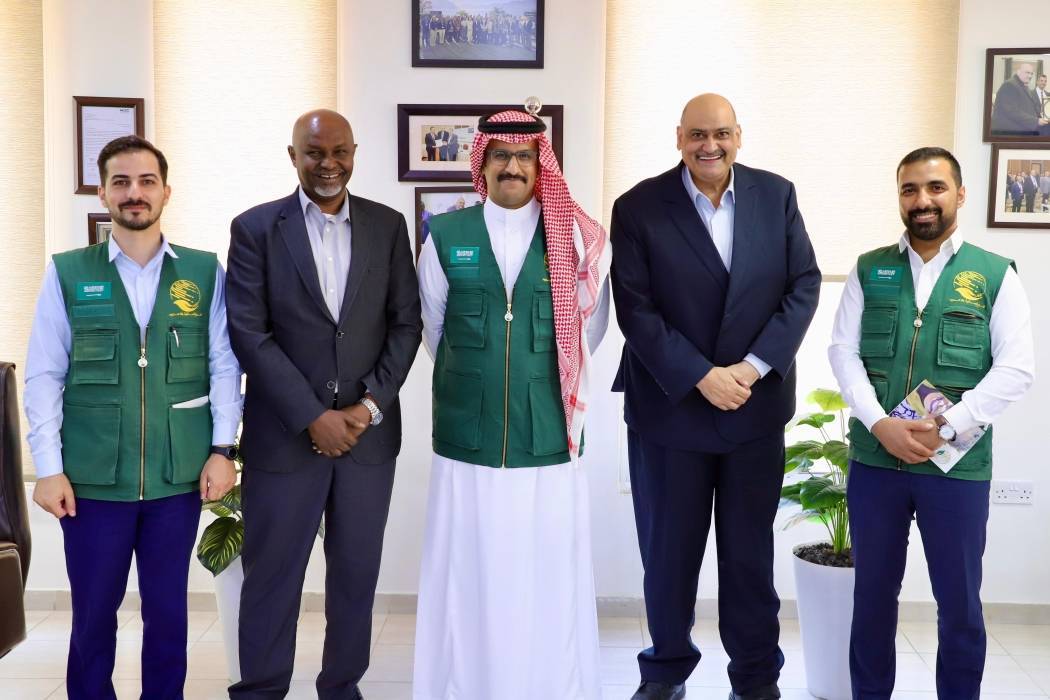- محلية
- الإثنين-2025-09-08 | 02:16 pm

نيروز الإخبارية :
The Eastern Mediterranean Public Health Network (EMPHNET) welcomed a team from the King Salman Humanitarian Aid and Relief Center (KSrelief), Jordan Office, at its headquarters in Amman. The official meeting discussed avenues for joint cooperation and explored ways to develop effective partnerships that support vulnerable communities and at-risk populations in the region.
The KSrelief team was led by the Director of the Amman Office, Mr. Naif Al Shamary, alongside several team members. From EMPHNET, the Executive Director, the Director of Emergency Management Center, and several colleagues from various departments also participated.
The discussion focused on the importance of strengthening institutional partnerships and expanding collaboration in health and humanitarian work. Both sides emphasized that these partnerships should be based on effective principles that serve sustainable development and enhance communities’ resilience.
EMPHNET’s team highlighted the pioneering role of KSrelief, stressing that the center has become a landmark in humanitarian work, due to its clear strategic vision that places human dignity at the heart of its interventions.
KSrelief’s Global Influence
Since its establishment in 2015, KSrelief has implemented more than 3,600 projects in over 108 countries worldwide, with a total value exceeding $8.15 billion. This positions the center as one of the leading humanitarian actors internationally, particularly in supporting communities affected by crises, conflicts, and natural disasters.
About EMPHNET
Founded in 2009 as a regional non-profit organization, EMPHNET operates in more than 18 countries across the Eastern Mediterranean and Africa. The network focuses on building health and relief capacities, supporting health systems, enhancing emergency preparedness and response, advancing digital health and artificial intelligence initiatives in conflict-affected areas, and establishing strategic partnerships with ministries of health and international organizations.
This visit reflects the commitment of both parties to strengthen cooperation in line with shared goals of protecting vulnerable populations, making them active partners in ongoing efforts to empower communities, promote sustainable development, and support the most in-need populations in the region and beyond.















